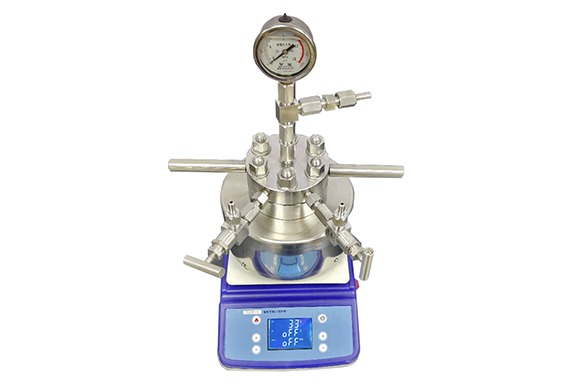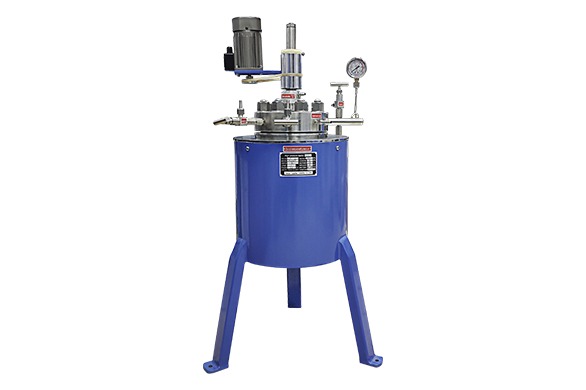What is a high pressure reactor?
high-pressure reactor is a device used for conducting chemical reactions under elevated pressure conditions. It typically consists of a sealed vessel capable of providing a high-pressure environment, usually ranging from several hundred to several thousand psi or even higher. These reactors find application in various experiments and industrial processes requiring high-pressure conditions, such as chemical synthesis, catalytic reactions, and high-temperature/high-pressure treatments.
The structure of a high-pressure reactor typically includes a sealed vessel made of pressure-resistant materials like borosilicate glass, stainless steel, or titanium alloy, along with pressure sensors, pressure relief devices, heating/cooling systems, and agitators. They allow researchers or engineers to perform experiments requiring controlled high-pressure environments.

TGYF-High Pressure Reactor
- Volume: 50-500ml
- Design Pressure: 16Mpa
- Design Temperature: 350℃
- Speed Control: stepless speed regulation
- Temperature Control: intelligent temperature control
- Temperature Measurement Nozzle: K type thermocouple
- UL & CSA Certified
CJF-High Pressure Reactor
- Material:304/316L stainless steel
- Design Pressure:22MPa
- Rotating Speed of Stirring:20-1000rpm
- Heating Method:electric heating
- Temperature Control Accuracy:±1℃
- UL & CSA Certified

